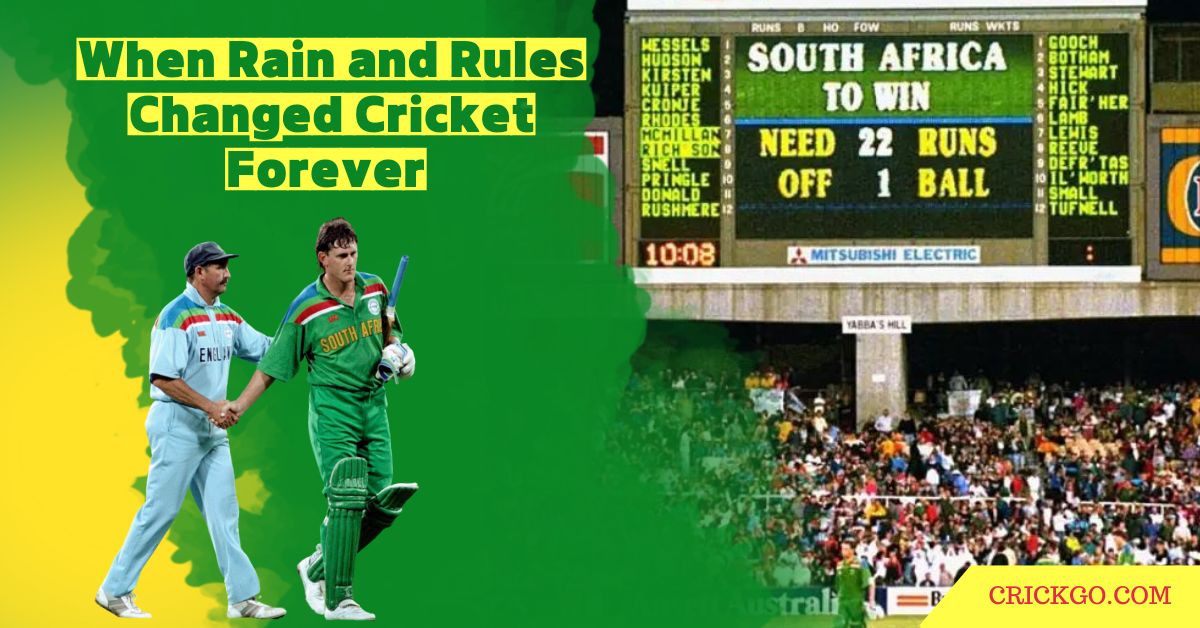Cricket grounds have witnessed many controversies, but a team losing a semi-final match due to a unique rule is something completely unheard of. This unheard of incident happened exactly 30 years ago on March 22, 1992, during the One-Day International (ODI) World Cup. The match between South Africa and England brought to light an exceptional scenario that eventually led to a controversial result.
In this match, South Africa needed 22 runs off 13 balls to win against England. However, the unexpected interruption of the rain changed the course of the match. When the match resumed, South Africa’s target was adjusted to 22 runs off just 1 ball – a seemingly unbelievable situation that went down in history as a controversy.
The World Cup 1992 introduced the “Most Productive Overs” rule by the International Cricket Council (ICC). This rule deducted runs from the total of the team batting first, based on their least productive overs, and set a new target for the chasing team. During the semi-final, rain paused the match for 12 minutes. As a result, two overs were lost, and England’s score was reduced by one run. England’s batsmen had played two overs, scoring only one run. This translated to a deduction of two overs and one run from their total. When South Africa’s batsmen faced one ball and scored one run, England secured victory by 19 runs.
Controversy arose because of the unusual rain rule and the extraordinary target South Africa had to chase. This incident left a mark in the history of cricket and raised questions and debates about the fairness of such regulations.
South Africa endured a 22-year ban due to apartheid policies. On its World Cup debut in 1992, the team faced a significant challenge. The match was already threatened by rain, but South African captain Kepler Wessels decided to bowl in first after winning the toss. Their bowlers could only bowl 45 overs in three and a half hours. England set a target of 252 runs for South Africa, scoring 252 runs for 6 wickets. Graham Hick was the outstanding performer with 83 runs. In response, the South African team could only manage 232 runs for 6 wickets.
Following this controversy, the ICC changed the rule and implemented the Duckworth-Lewis method. However, England were unable to capitalize on their victory as Pakistan defeated them in the final to secure their first World Cup title. The England team reached the semi-finals or finals of three consecutive World Cups, but failed to secure the championship each time.
Ultimately, this unique incident highlighted the intricacies of cricket’s rules and how they can dramatically affect match outcomes, even in the high-stakes environment of a World Cup semi-final.

